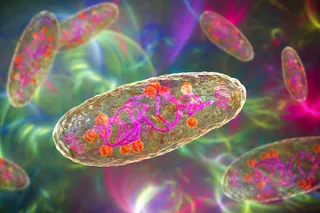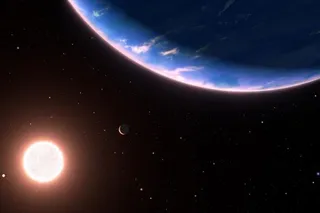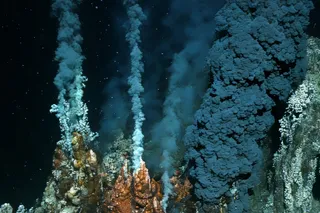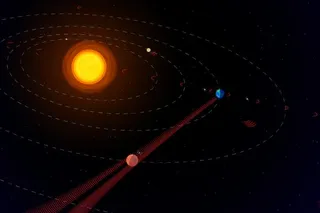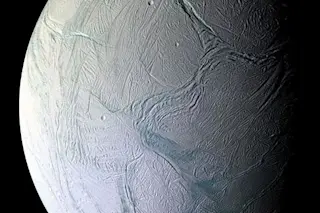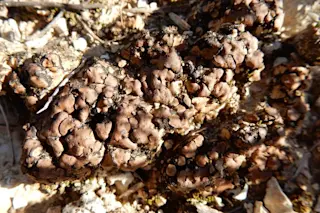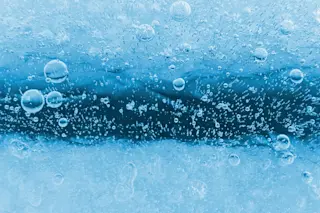E. coli
What's the News: Some bacteria can live in extreme "hypergravity," found a new study
published in the Proceedings of the National Academy of Sciences, surviving and reproducing in forces 400,000 times greater than what's felt on Earth. These findings fit with the idea that microbes carried on meteorites or other debris---a ride that would have subjected them to hypergravity-strength forces---may be the ancestors of life on Earth. How the Heck:
While measuring the density of the common intestinal bacteria Escherichia coli, the researchers noticed that the bacteria seemed undeterred by spinning around at the equivalent of 7,500 G's---so they decided to see how much pressure these microbes could handle.
The researchers spun samples of E. coli and three other types of bacteria in an ultracentrifuge, to generate hypergravity conditions.
E. coli and one other bacteria, Paracoccus denitrificans, could not only survive but continue to reproduce at 403,627 G's, ...


